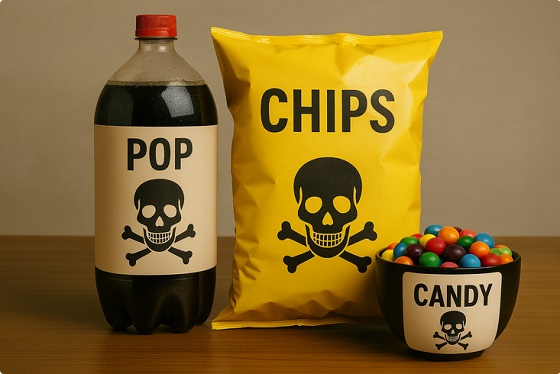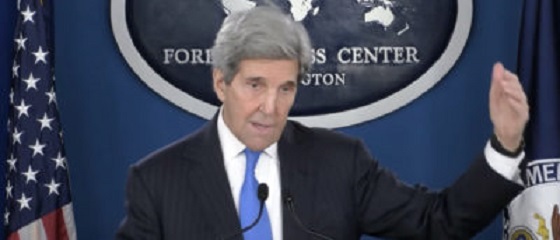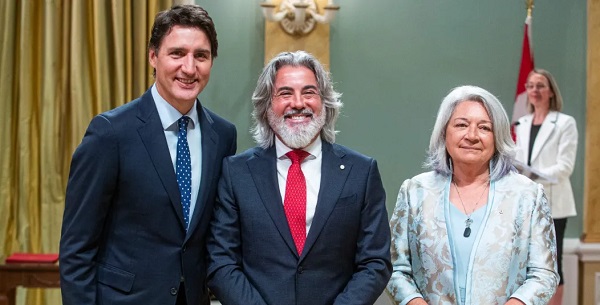Alberta
Alcohol sales in grocery and convenience stores would benefit Albertans

From the Fraser Institute
By Alex Whalen
Earlier this year, the Smith government confirmed that a panel of MLAs has been exploring the idea of allowing grocery and convenience stores to sell alcohol. Since then, there’s been no new developments. But despite misleading claims from some groups resisting the move, greater retail access would benefit consumers.
Alberta’s fully-private retail market for alcohol is unique within Canada. Following privatization of alcohol retail in 1993, consumers in Alberta have benefitted from greater choice and convenience in the absence of government-owned retail outlets. However, the provincial government still controls which private operators can sell alcohol, and generally prohibits the sale in convenience and grocery stores.
But expansion into grocery and convenience stores simply makes sense. Individual retailers should decide where to sell (or not sell) alcohol to cater to consumer preferences rather than have terms dictated by government. As the footprint of government has expanded in Alberta, policymakers should remember what are the core functions of government, and what’s best left to the private sector. And there’s no good reason for government to dictate which stores can sell alcohol.
Again, some groups including the Canadian Centre for Policy Alternatives claim that Albertans pay higher prices for alcohol under privatization, yet this claim simply doesn’t add up.
First, these groups typically use average prices across Canada to support this claim. But average prices across Canada—which includes provinces with strict government controls of alcohol sales—are meaningless because the mix of products in Alberta has changed. In post-privatization Alberta, retailers and consumers come together in a market to set prices. Consumers may willingly pay more for alcohol in Alberta because they find higher quality products, more convenient locations and/or better store hours than in other provinces.
Rather, what matters are not “average prices” but minimum prices and the ability to find the product you desire at the lowest available price. One comparison of nearly 2,000 products between Alberta and British Columbia (which maintains a more government-controlled system of retail) using minimum prices estimated that 83 per cent of beer, wine and spirits were available at cheaper prices in Alberta.
Moreover, liquor store locations have also become more convenient for Albertans. In 2018 (the latest year of available data), 64 per cent of Albertans lived within a kilometre of a liquor store—by far the highest percentage of any province in Canada and much higher than the 26 per cent in Ontario, which has government-operated liquor stores. In the United States, three-quarters of Americans are served by a private liquor retailing system, and privatized states have 50 per cent more liquor stores per capita than those where government controls sales.
And Alberta’s liquor product selection has expanded from 2,200 in 1993 to more than 31,000 varieties of beer, wine and spirits today. By comparison, Ontarians have at least 6,000 fewer products available.
Finally, critics claim that privatization leads to increases in social problems that arise from alcohol consumption. However, the leading study of Alberta’s 1993 privatization found no evidence of increased social problems such as impaired driving or other alcohol-related offenses.
Alberta has led the way in promoting consumer choice in what is otherwise a strictly controlled market for alcohol in Canada. To strengthen this advantage, the Smith government should continue to remove unnecessary restrictions for the benefit of Albertans.
Author:
Alberta
Keynote address of Premier Danielle Smith at 2025 UCP AGM

From the YouTube Channel of Rebel News
Alberta
Net Zero goal is a fundamental flaw in the Ottawa-Alberta MOU

From the Fraser Institute
By Jason Clemens and Elmira Aliakbari
The challenge of GHG emissions in 2050 is not in the industrial world but rather in the developing world, where there is still significant basic energy consumption using timber and biomass.
The new Memorandum of Understanding (MOU) between the federal and Alberta governments lays the groundwork for substantial energy projects and infrastructure development over the next two-and-a-half decades. It is by all accounts a step forward, though, there’s debate about how large and meaningful that step actually is. There is, however, a fundamental flaw in the foundation of the agreement: it’s commitment to net zero in Canada by 2050.
The first point of agreement in the MOU on the first page of text states: “Canada and Alberta remain committed to achieving net zero greenhouse gas emissions by 2050.” In practice, it’s incredibly difficult to offset emissions with tree planting or other projects that reduce “net” emissions, so the effect of committing to “net zero” by 2050 means that both governments agree that Canada should produce very close to zero actual greenhouse gas (GHG) emissions. Consider the massive changes in energy production, home heating, transportation and agriculture that would be needed to achieve this goal.
So, what’s wrong with Canada’s net zero 2050 and the larger United Nations’ global goal for the same?
Let’s first understand the global context of GHG reductions based on a recent study by internationally-recognized scholar Vaclav Smil. Two key insights from the study. First, despite trillions being spent plus international agreements and regulatory measures starting back in 1997 with the original Kyoto agreement, global fossil fuel consumption between then and 2023 increased by 55 per cent.
Second, fossil fuels as a share of total global energy declined from 86 per cent in 1997 to 82 per cent in 2022, again, despite trillions of dollars in spending plus regulatory requirements to force a transition away from fossil fuels to zero emission energies. The idea that globally we can achieve zero emissions over the next two-and-a-half decades is pure fantasy. Even if there is an historic technological breakthrough, it will take decades to actually transition to a new energy source(s).
Let’s now understand the Canada-specific context. A recent study examined all the measures introduced over the last decade as part of the national plan to reduce emissions to achieve net zero by 2050. The study concluded that significant economic costs would be imposed on Canadians by these measures: inflation-adjusted GDP would be 7 per cent lower, income per worker would be more than $8,000 lower and approximately 250,000 jobs would be lost. Moreover, these costs would not get Canada to net zero. The study concluded that only 70 per cent of the net zero emissions goal would be achieved despite these significant costs, which means even greater costs would be imposed on Canadians to fully achieve net zero.
It’s important to return to a global picture to fully understand why net zero makes no sense for Canada within a worldwide context. Using projections from the International Energy Agency (IEA) in its latest World Energy Outlook, the current expectation is that in 2050, advanced countries including Canada and the other G7 countries will represent less than 25 per cent of global emissions. The developing world, which includes China, India, the entirety of Africa and much of South America, is estimated to represent at least 70 per cent of global emissions in 2050.
Simply put, the challenge of GHG emissions in 2050 is not in the industrial world but rather in the developing world, where there is still significant basic energy consumption using timber and biomass. A globally-coordinated effort, which is really what the U.N. should be doing rather than fantasizing about net zero, would see industrial countries like Canada that are capable of increasing their energy production exporting more to these developing countries so that high-emitting energy sources are replaced by lower-emitting energy sources. This would actually reduce global GHGs while simultaneously stimulating economic growth.
Consider a recent study that calculated the implications of doubling natural gas production in Canada and exporting it to China to replace coal-fired power. The conclusion was that there would be a massive reduction in global GHGs equivalent to almost 90 per cent of Canada’s total annual emissions. In these types of substitution arrangements, the GHGs would increase in energy-producing countries like Canada but global GHGs would be reduced, which is the ultimate goal of not only the U.N. but also the Carney and Smith governments as per the MOU.
Finally, the agreement ignores a basic law of economics. The first lesson in the very first class of any economics program is that resources are limited. At any given point in time, we only have so much labour, raw materials, time, etc. In other words, when we choose to do one project, the real cost is foregoing the other projects that could have been undertaken. Economics is mostly about trying to understand how to maximize the use of limited resources.
The MOU requires massive, literally hundreds of billions of dollars to be used to create nuclear power, other zero-emitting power sources and transmission systems all in the name of being able to produce low or even zero-emitting oil and gas while also moving to towards net zero.
These resources cannot be used for other purposes and it’s impossible to imagine what alternative companies or industries would have been invested in. What we do know is that workers, entrepreneurs, businessowners and investors are not making these decisions. Rather, politicians and bureaucrats in Ottawa and Edmonton are making these decisions but they won’t pay any price if they’re wrong. Canadians pay the price. Just consider the financial fiasco unfolding now with Ottawa, Ontario and Quebec’s subsidies (i.e. corporate welfare) for electric vehicle batteries.
Understanding the fundamentally flawed commitment to Canadian net zero rather than understanding a larger global context of GHG emissions lays at the heart of the recent MOU and unfortunately for Canadians will continue to guide flawed and expensive policies. Until we get the net zero policies right, we’re going to continue to spend enormous resources on projects with limited returns, costing all Canadians.
-

 Food20 hours ago
Food20 hours agoCanada Still Serves Up Food Dyes The FDA Has Banned
-

 Daily Caller2 days ago
Daily Caller2 days agoJohn Kerry Lurches Back Onto Global Stage For One Final Gasp
-

 Addictions20 hours ago
Addictions20 hours agoManitoba Is Doubling Down On A Failed Drug Policy
-

 National1 day ago
National1 day agoEco-radical Canadian Cabinet minister resigns after oil deal approved
-

 Alberta20 hours ago
Alberta20 hours agoNet Zero goal is a fundamental flaw in the Ottawa-Alberta MOU
-

 Alberta15 hours ago
Alberta15 hours agoKeynote address of Premier Danielle Smith at 2025 UCP AGM
-

 COVID-1921 hours ago
COVID-1921 hours agoFDA says COVID shots ‘killed’ at least 10 children, promises new vaccine safeguards
-

 National2 days ago
National2 days agoAlleged Liberal vote-buying scandal lays bare election vulnerabilities Canada refuses to fix







